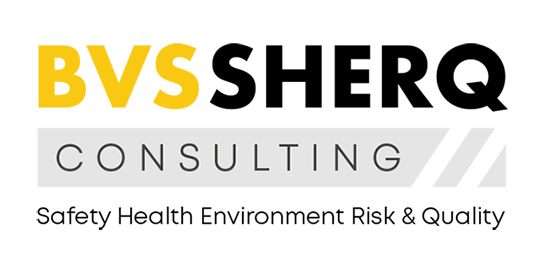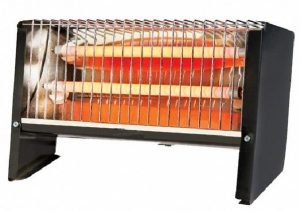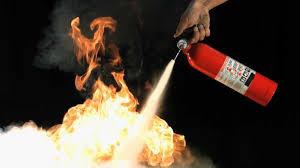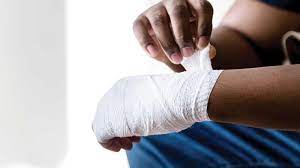
Injury on Duty and the Compensation Fund
March 3, 2022
Safety at home: How to use a fire extinguisher
March 17, 2022During winter there is a definite increase in the use of heaters – from wood, gas, infrared and coil to asbestos, paraffin, oil, fan, and radiator heaters. We use bar heaters and blow heaters, and we put electric blankets under our sheets. Each of these poses a potential risk. It is therefore essential to remain watchful and adhere to the specific heating device warnings and instructions.
Here are some general safety tips for household heating:
General
- Place heaters away from materials such as curtains, bedding, clothing, and wooden furniture and ensure adult supervision if children are around.
- Keep children and pets at least one metre away from all heating units.
- Never leave a heater on when you leave the house.
- Do not place objects directly on top of heaters and leave a one-metre object free space around heating units.
- Do not place anything less than a metre in front of your open fire or heater
- Never use (an electric or gas) oven to heat the house.
Electrical appliances
- Always check cords and wiring on electrical heaters before using them and do not use devices with frayed or damaged wiring.
- Do not use extension cords or multi-plugs for your heaters.
- Never run electric cables under carpets, as this might cause a short and start a fire.
- Use electric heaters with great caution. Never leave a heater unattended – this includes while you are sleeping.
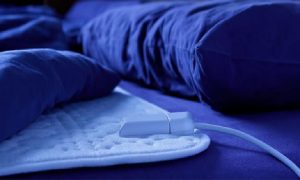 Unplug electric heaters before you go to sleep or leave the area where they are used.
Unplug electric heaters before you go to sleep or leave the area where they are used.- Always turn heaters and electric blankets off when leaving the room for an extended period or going to bed.
- Do not use your heater to dry your clothes.
- Switch electric blankets off at the wall plug once you leave the bed.
- Turn off all electrical appliances if a power failure occurs in your area.
- Keep electrical appliances and cables away from water.
- Keep your eyes open for signs of dangerous or loose wiring such as scorch marks, hot plugs and sockets, flickering lights, fuses that blow, or circuit-breakers that trip for no obvious reason.
- Check and replace any old cables, paying particular attention to those that are hidden behind furniture or under carpets.
The risk of electrical faults can rise during winter, as we use an increasing number of heat-related appliances simultaneously. Having the kettle, the toaster, and several heaters going at the same time can prove dangerous if you are using the same socket for all these appliances.
Gas heaters and fireplaces
- Open fireplaces should always have a spark guard.
- Always extinguish the fire in a fireplace before you go to bed.
- When using gas heaters and fireplaces, ensure that the room is adequately ventilated.
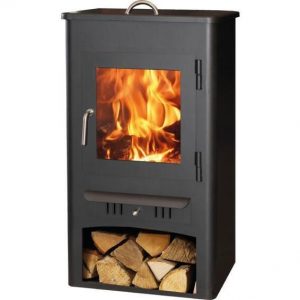
- Take special care when you use open fires for barbequing or heating, and extinguish all before you leave the area.
- Extinguish an open fire before you leave it.
- Ensure that the chimney in your house is cleaned regularly and covered with a safety shield.
- Have your heating equipment or chimney cleaned and inspected every year by a qualified professional.
- Use paraffin appliances in a well-ventilated area and switch them off after using them.
- Store flammable liquids in a cool, ventilated area to avoid explosions.
In the event of a fire
If a fire occurs in your home, follow these steps:
- Keep calm, act quickly, and get yourself and everyone else out as soon as possible.
- Do not waste time rescuing valuables.
- If there is smoke, keep low, where the air is clearer
- Call the fire department or emergency services first.
- You can also call ER24 at 084 124 or an armed response partner who can contact emergency services and support in the event of a trauma.
A few other things to keep in mind
- Have a smoke detector and gas detector installed.
- Store fire blankets and fire extinguishers in readily accessible places, and do not forget to have fire extinguishers maintained each year.
- Many alarm systems have an emergency or medical panic button on them. Check with your response provider and know which button to press in an emergency.
